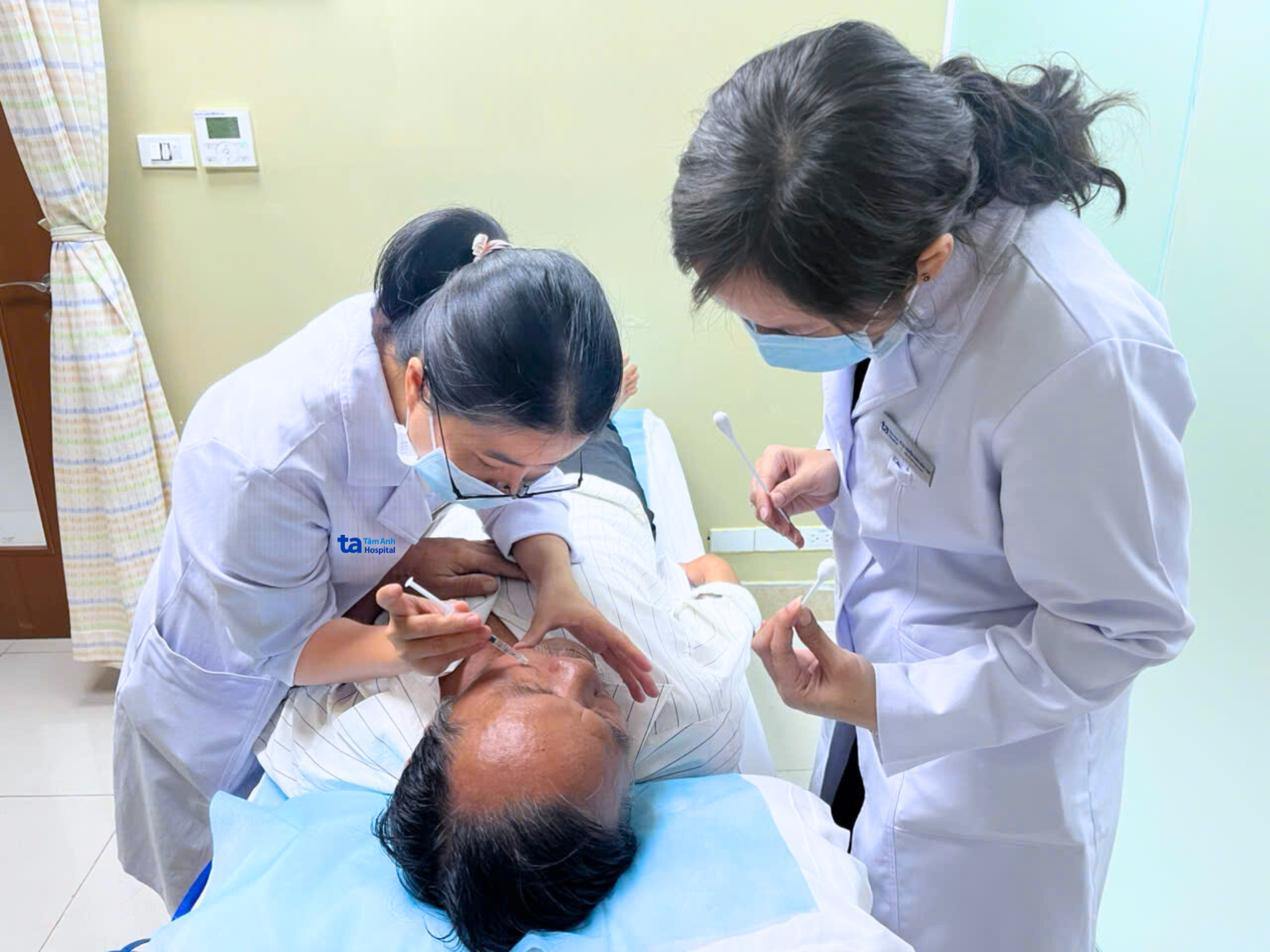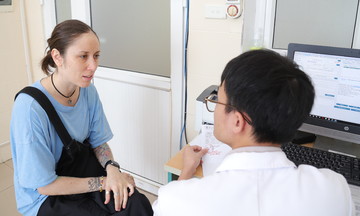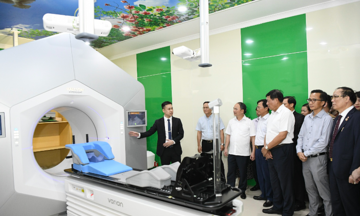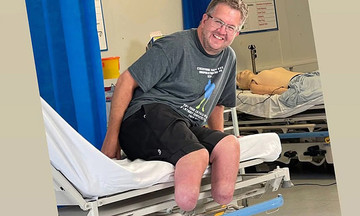Doctor Tran Nguyen Uyen Dung, from the Neurology Department of the Neuroscience Center at Tam Anh General Hospital in Ho Chi Minh City, explains that botulinum toxin (Botox) is a purified product derived from the clostridium botulinum bacterium. It's approved by the Ministry of Health for treating several neurological and musculoskeletal conditions.
When injected, Botox inhibits the release of acetylcholine, a neurotransmitter. This temporarily weakens overactive muscles. This mechanism allows Botox to control continuous spasms in facial and eye muscles, improving communication and aesthetics for individuals with hemifacial spasm or blepharospasm (eyelid twitching). It also provides pain relief for those with cervical or hand dystonia, correcting posture. Doctors prescribe Botox injections for people with oromandibular dystonia to reduce salivation and drooling, and to limit abnormal movements.
Stroke patients experiencing muscle spasticity can use Botox to reduce stiffness, facilitating movement, exercise, and self-care. It's also effective for patients with chronic, drug-resistant migraines, trigeminal neuralgia, or postherpetic neuralgia when conventional medications are ineffective.
 |
A doctor administers a Botox injection to a patient with hemifacial spasm. *Photo: Tam Anh General Hospital* |
Botox typically takes effect within a few days, with patients noticing improvements between two and seven days post-injection. The most significant results appear after about two weeks, with the degree of improvement varying depending on the condition. Due to its temporary mechanism, injections are typically repeated every three months to maintain effectiveness, according to Doctor Dung.
The Botox injection procedure requires a doctor's examination to assess indications and contraindications. The doctor then determines the dosage and injection sites, potentially using electromyography or ultrasound to precisely locate the target muscles. After the procedure, patients are monitored for 30-60 minutes and have a follow-up appointment after two to 4 weeks to evaluate its effectiveness.
Botox may not be suitable for pregnant women, individuals with progressive neuromuscular diseases (such as amyotrophic lateral sclerosis - ALS), or those with a history of severe allergic reactions to the drug's components. Systemic side effects are rare and include mild fever, fatigue, and muscle aches, which usually resolve within a few days.
Phuong Thy
| Readers can submit questions about neurological conditions here for doctors to answer. |












